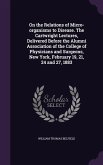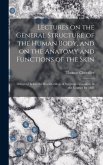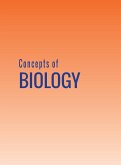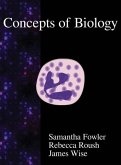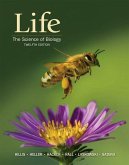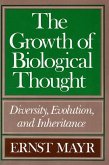- Gebundenes Buch
- Merkliste
- Auf die Merkliste
- Bewerten Bewerten
- Teilen
- Produkt teilen
- Produkterinnerung
- Produkterinnerung
Assessment in the College Science Classroom introduces formative and summative assessment techniques, including an introduction to the literature that supports these efforts and their practical application in the classroom.
Andere Kunden interessierten sich auch für
![On the Relations of Micro-organisms to Disease. The Cartwright Lectures, Delivered Before the Alumni Association of the College of Physicians and Surgeons, New York, February 19, 21, 24 and 27, 1883 On the Relations of Micro-organisms to Disease. The Cartwright Lectures, Delivered Before the Alumni Association of the College of Physicians and Surgeons, New York, February 19, 21, 24 and 27, 1883]() William Thomas BelfieldOn the Relations of Micro-organisms to Disease. The Cartwright Lectures, Delivered Before the Alumni Association of the College of Physicians and Surgeons, New York, February 19, 21, 24 and 27, 188335,99 €
William Thomas BelfieldOn the Relations of Micro-organisms to Disease. The Cartwright Lectures, Delivered Before the Alumni Association of the College of Physicians and Surgeons, New York, February 19, 21, 24 and 27, 188335,99 €![Lectures on the General Structure of the Human Body, and on the Anatomy and Functions of the Skin; Delivered Before the Royal College of Surgeons in London, in the Courses for 1823 Lectures on the General Structure of the Human Body, and on the Anatomy and Functions of the Skin; Delivered Before the Royal College of Surgeons in London, in the Courses for 1823]() Thomas ChevalierLectures on the General Structure of the Human Body, and on the Anatomy and Functions of the Skin; Delivered Before the Royal College of Surgeons in London, in the Courses for 182337,99 €
Thomas ChevalierLectures on the General Structure of the Human Body, and on the Anatomy and Functions of the Skin; Delivered Before the Royal College of Surgeons in London, in the Courses for 182337,99 €![Concepts of Biology Concepts of Biology]() Samantha FowlerConcepts of Biology100,99 €
Samantha FowlerConcepts of Biology100,99 €![Concepts of Biology Concepts of Biology]() Samantha FowlerConcepts of Biology121,99 €
Samantha FowlerConcepts of Biology121,99 €![Life: The Science of Biology Life: The Science of Biology]() David M. HillisLife: The Science of Biology411,99 €
David M. HillisLife: The Science of Biology411,99 €![The Growth of Biological Thought The Growth of Biological Thought]() Ernst MayrThe Growth of Biological Thought53,99 €
Ernst MayrThe Growth of Biological Thought53,99 €![The Evolution of Continuity in the Natural World The Evolution of Continuity in the Natural World]() David RussellThe Evolution of Continuity in the Natural World38,99 €
David RussellThe Evolution of Continuity in the Natural World38,99 €-
-
-
Assessment in the College Science Classroom introduces formative and summative assessment techniques, including an introduction to the literature that supports these efforts and their practical application in the classroom.
Hinweis: Dieser Artikel kann nur an eine deutsche Lieferadresse ausgeliefert werden.
Hinweis: Dieser Artikel kann nur an eine deutsche Lieferadresse ausgeliefert werden.
Produktdetails
- Produktdetails
- Verlag: W. H. Freeman
- Seitenzahl: 205
- Erscheinungstermin: 11. April 2014
- Englisch
- Abmessung: 236mm x 180mm x 15mm
- Gewicht: 476g
- ISBN-13: 9781429281973
- ISBN-10: 1429281979
- Artikelnr.: 41244176
- Herstellerkennzeichnung
- Libri GmbH
- Europaallee 1
- 36244 Bad Hersfeld
- gpsr@libri.de
- Verlag: W. H. Freeman
- Seitenzahl: 205
- Erscheinungstermin: 11. April 2014
- Englisch
- Abmessung: 236mm x 180mm x 15mm
- Gewicht: 476g
- ISBN-13: 9781429281973
- ISBN-10: 1429281979
- Artikelnr.: 41244176
- Herstellerkennzeichnung
- Libri GmbH
- Europaallee 1
- 36244 Bad Hersfeld
- gpsr@libri.de
Clarissa Dirks is an Associate Professor of Biology at The Evergreen State College in Olympia, Washington. She earned her PhD in Molecular and Cellular Biology at the University of Washington, conducting research in virology at the Fred Hutchinson Cancer Research Center. She currently investigates the evolution of viruses and host viral-inhibitory proteins, as well as the distribution and biodiversity of Tardigrada species. As a Biology Education Researcher, she has implemented programs to improve retention of underrepresented students in first year science courses, conducted studies to better understand how students acquire and master science process and reasoning skills, and is developing assessment instruments to measure undergraduates science process skill acquisitions. She has received two Tom Rye Harvill Awards for the Integration of Art and Science, has been named a National Academies Education Fellow and Mentor in the Life Sciences, and is the recipient of two Biology Leadership Education grants. She works to provide professional development opportunities for faculty and post-doctoral scholars by serving on the National Academies Summer Institute for Undergraduate Science Education Committee, leading a Pacific Northwest Regional Summer Institute, and mentoring post-doctoral fellows as a regional field station leader for the Faculty Institute for Reforming Science Teaching. As a member of the National Research Councils Board on Life Sciences committee on Developing a Framework for an International Faculty Development Project on Education about Research in the Life Sciences with Dual Use Potential, she trains faculty in best practices for teaching responsible conduct of research in their countries. She is a member of the Editorial Board of the journal CBE-Life Science Education and a co-founder of the Society for the Advancement of Biology Education Research (SABER). Dr. Mary Pat Wenderoth is a Principal Lecturer in the Department of Biology at the University of Washington and teaches upper division animal physiology courses. She is a member of the University of Washington Biology Education Research Group, a group of twenty to thirty faculty, post-docs, graduate students, and undergraduate students who meet weekly to discuss the impact of innovative active learning practices on student learning. Dr. Wenderoth won the University of Washington Distinguished Teaching Award in 2001 and is a member o of the University of Washington Teaching Academy. Dr. Wenderoth has been involved with the faculty development efforts of the National Academies Scientific Teaching Alliance, NASTA) since 2006 and continues to be involved with the new regional summer institutes that began in 2011. In 2010, Dr. Wenderoth co-founded the Society for the Advancement of Biology Education Research (SABER). SABER is a national network of faculty, post-docs, and graduate students who are conducting hypothesis-driven research in an effort to create a body of evidence-based teaching practices for undergraduate biology courses. Michelle Withers is an Associate Professor in Biology at West Virginia University. Her research focuses on improving undergraduate science education, particularly evaluating the efficacy of different teaching methods in enhancing student learning. Another major focus of her program is training faculty and future faculty in scientific teaching. She runs the eh National Academies Summer Institute at West Virginia University, a regional offshoot of the National Academies Summer Institute on Undergraduate Biology Education (NASI). She serves as the Director for the National Academies Scientific Teaching Alliance (NASTA), and on the executive board of the Biology Directors Consortium (BDC), and is a founding member of the Society for the Advancement of Biology Education Research (SABER). She graduated with a BS in Public Health from the University of North Carolina at Chapel Hill and received her PhD in Neuroscience from the University of Arizona, Tucson.


